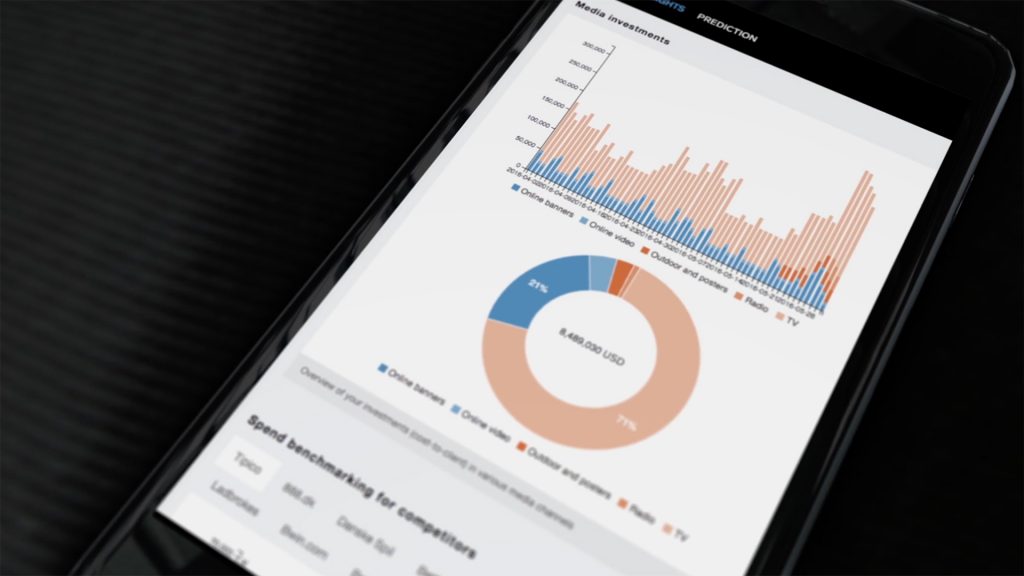Key Takeaway
AI is beginning to edge out humans at traditional media agencies when it comes to optimizing for ad spend. Startups like Blackwood Seven and Albert.ai use predictive analytics and machine learning to plan and optimise a brand’s media buying and lead generation strategies, and their results are outperforming their human peers.
Blackwood Seven automates media buying for global brands
Launched in 2013, Danish media buying startup Blackwood Seven has been using predictive analytics, fueled by insights from external data, to help brands like Volkswagen, Lyft and Dollar Shave Club optimize their media buying strategy.
Even Blackwood’s revenue model is disruptive. The SaaS company charges a monthly fee for its services no matter how much clients spend on media. This opposes the commission-based fee on which media agencies have operated for years. As a result, they have no need to cut deals with media companies in efforts to increase margins or mark up media for their clients.
Blackwood Seven’s platform allows marketers to purchase media online and through traditional channels like TV and radio themselves. What’s unique is the data that fuels the AI’s purchase recommendations.
According to The Drum, its algorithms use a brand’s internal sales data, as well as market data – in the case of Volkswagon, for instance, things like fuel price, competitor prices and overall car registrations – from sources like YouGov, Nielsen and ad spend trackers to “predict the business results of a media plan, spanning everything from brand value to store traffic.” Machine learning helps the algorithm improve over time. Advertisers can also plug in their own sales data for real-time updates on which investments are performing best.

In 2015, Volkswagen shifted its media business to Blackwood from a traditional agency. According to Digiday UK, between September and December 2016, for its up! model, Blackwood’s algorithms led to a 14-20 percent rise in orders from Volkswagen’s dealerships vs those from its agency’s recommendations.
According to Lutz Kothe, Volkswagen’s head of marketing for passenger cars, What separates Blackwood Seven from other agencies is the AI platform’s capacity to process large amounts of data. “Volkswagen’s marketers pull data from more than 1,400 touch points…The biggest advantage is the ability to better predict what the brand’s media investments will do. The more precise the recommendations become, the more we can steer our media activity into the best areas.”
While the brand has boasted significant success, it’s still struggling to find its place in a world where AI is in its infancy. It recently closed its UK office just a year after launch, CEO Erik Kjærsgaard citing the fact that given its business model, much work can be done remotely as human staff aren’t always necessary. “We are coming with recommendations,” he explained. “Do we need to do the implementation? Not necessarily.”

Albert.ai overhauls lead gen for Harley-Davidson in NYC
According to a report in Harvard Business Review, the owner of a Harley dealership in NYC took a chance on a new marketing AI called Albert, which claims to help generate more qualified sales leads by automating ad creation, targeting and placement. The result? In the first month, his dealership went from getting one qualified lead per day to 40. “By the third month, the dealership’s leads had increased 2930%, 50% of them lookalikes.”
The AI uses predictive algorithms and learnings from past campaigns to create lookalike audiences. It finds leads that have similar characteristics to those who have purchased in the past, based on an analysis of the brand’s existing creative and CRM database as well as external data, perfected through rapid testing, and feeds them the right ads at the right time.
“It used the data gathered through these tests to predict which possible headlines and visual combinations – and thousands of other campaign variables – would most likely convert different audience segments through various digital channels (social media, search, display, and email or SMS).”
Albert evaluated what was working across digital channels and what wasn’t, and used what it learned to create more opportunities for conversion.

For marketing, AI tools can predict the best keywords, examine real user behavior from millions of potential customers and perform rapid experiments in ways humans can’t. “Albert does all the execution work for you,” Founder Or Shani said, “so you really have time to think about strategy and focus on creative.” It aims to consolidate and micromanage all marketing tasks, from email marketing to native advertising.
AI informs creative marketing
AI is also being used to help improve marketing content. Startup EyeEm analyzes image content to determine how aesthetically pleasing an image is, and can help write keyword-driven captions.
Copywriting and grammar are lent an assist by text-driven AI like Crystal and Grammarly, which can precisely tailor messaging in emails, meetings, and conversations to a particular audience and unique personality, as well as ensure grammar is top notch. Soon there will be no excuse for typos or poorly-structured emails.
The question that always remains is whether these tools will end up replacing humans in the creative field. While things like media buying will certainly become more automated, the creative industry will always need a human touch – these tools will simply augment work already being done. The best part is they’ll only improve with time. So those brands that invest in AI to augment their efforts early will most certainly find themselves at an advantage over the rest.


